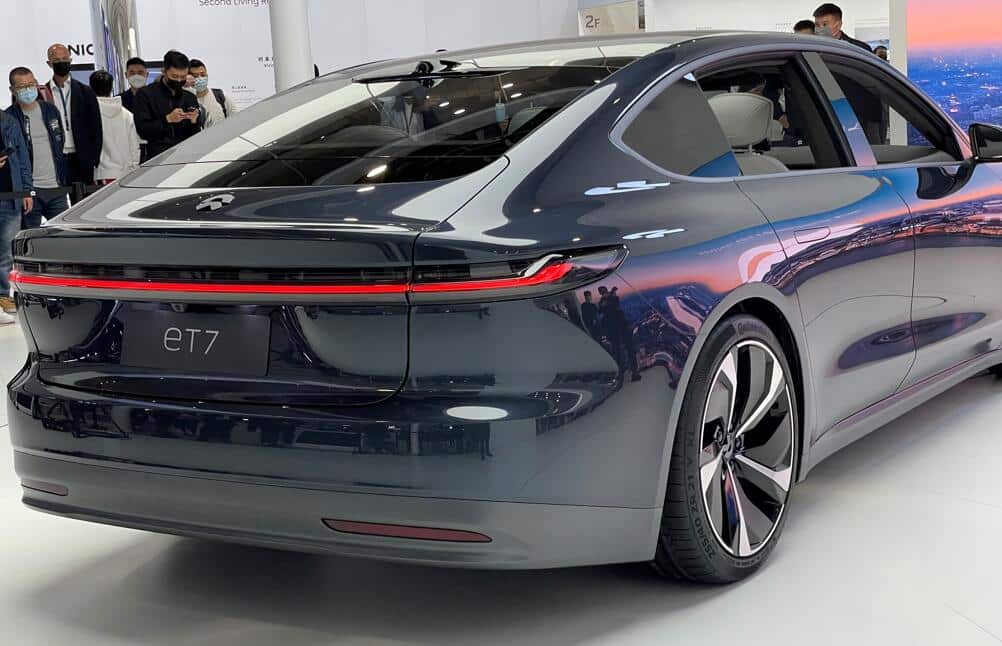Nio, Xpeng, Li Auto thrive on products and ecosystems, but fierce competition requires significant investment to stay competitive, according to Fitch.

(Image credit: CnEVPost)
Credit rating firm Fitch Ratings said that leading Chinese electric vehicle (EV) startups Nio, Xpeng Motors, and Li Auto are thriving on their products and ecosystems, but warns about the intense competition they may face next.
In a report, released Tuesday, Fitch said China's start-up EV leaders have established themselves in a booming market where branding, product, value for money and after-sales service are playing a bigger role, yet fiercer competition will require significant investment to retain competitiveness.
Fitch detailed the EV industry in China, with the respective products and features of Nio, Xpeng, and Li Auto in the 12-page report, which appears to be the agency's first coverage of the three companies.
Fitch expects strong growth in passenger EVs in China to continue at a 28 percent CAGR over the period 2021-2025 and to exceed 35 percent share by 2025.
Key beneficiaries of the strong growth include the three publicly traded EV startups, Nio, Xpeng, and Li Auto, which survived the industry downturn in 2019 and have emerged as market leaders, particularly in the smart EV segment, the report said.
In 2021, Chinese startup brands have a 15 percent market share of all EVs sold, with these three brands contributing 57 percent, the report noted.
Fitch expects the three EV leaders to maintain strong growth as China's EV market becomes less policy-driven and less dependent on government subsidies, towards one that is more competitive, with brand, product, value for money and after-sales service playing a greater role.
However, they could face stiff competition from new EV marques of existing Chinese automakers, global automakers and new entrants backed by domestic tech giants such as Baidu, Xiaomi and Huawei, the report said.
Leading Chinese EV startups aim to differentiate their brands through a high degree of vehicle intelligence, premium user service and an integrated ecosystem covering production, sales, energy replenishment and other after-sales services.
But this requires intensive research and development as well as sales and marketing expenses, requiring significant upfront investment and pressure on profitability, Fitch noted.
The financial profiles of the three publicly traded EV leaders are constrained by weak, albeit improving, profitability, although this is mitigated by abundant liquidity following equity fundraising in 2020 and 2021, Fitch said.
Fitch expects their business profiles to remain weak in the near term, with small size, short track record, limited diversification and high execution risk.
It is important to note that Fitch is a debt rating agency and the current debt size of Nio, Xpeng, and Li Auto is not high.
These startups are not heavy borrowers, and their interest-bearing debt is primarily bank loans for plant construction, Fitch noted.